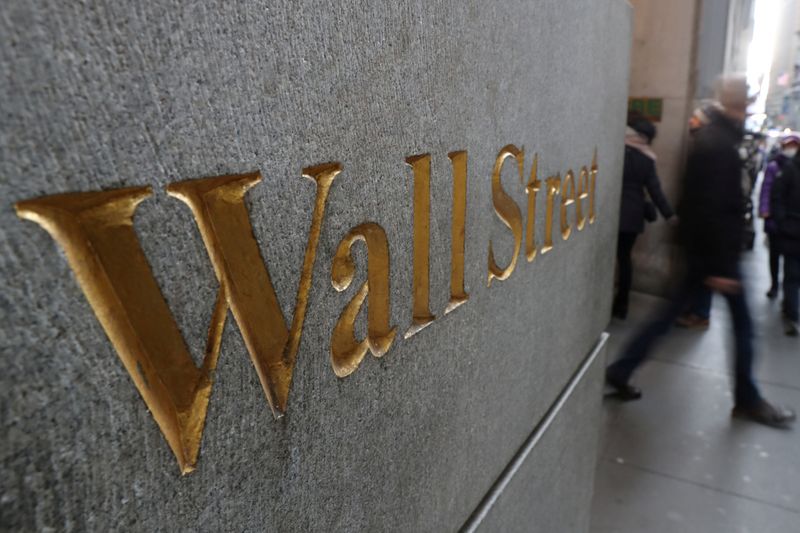By Joshua Franklin, Krystal Hu and Anirban Sen
NEW YORK (Reuters) - There have only been two direct listings on the New York Stock Exchange in the last two years. There is about to be two more in a single day.
Data analytics company Palantir Technologies (N:PLTR) and workplace software maker Asana Inc (N:ASAN) are set to debut on the U.S. stock market on Wednesday bypassing an initial public offering (IPO).
The last direct listing was workplace messaging platform Slack Technologies Inc 's (N:WORK) debut in 2019, which came a year after music-streaming service Spotify Technology SA (N:SPOT) went public without an IPO.
It is a seminal moment for some investors and corporate executives who have been pushing to shed investment banks as their middlemen. For years, they have criticized IPOs as chummy deals that allowed bankers to allocate the most shares to their top clients.
"Ever since the IPO process has existed, entrepreneurs and their investors have believed that bankers have sub-optimized and taken too much for themselves," said Ben Narasin, a partner at U.S. venture capital firm New Enterprise Associates.
"If Palantir and Asana are successful, which they should be, more and more companies will return to looking seriously at direct listings," Narasin added.
IPOs have been on a tear this year, as companies rode the stock market rally that followed the coronavirus-induced slump. Companies have launched almost $50 billion in U.S. IPOs so far in 2020, excluding special purpose acquisition company (SPAC) IPOs. This has already outpaced the haul for all of 2019 and is on track to be the busiest since 2014 and second biggest since 2000.
In 2020, the price of a newly listed company's shares has risen by an average of 38% on the first day of trading, according to IPOScoop data and Reuters calculations.
This has fueled renewed criticism among investors snubbed by the investment banks underwriting the IPOs, as well as suspicion among some companies that bankers are leaving money on the table in their IPO to help create a first-day trading "pop".
Phil Hellmuth, an angel tech investor and poker player with over $20 million in career winnings, said in an interview that he tried to buy $500,000 worth of shares in data warehouse company Snowflake Inc (N:SNOW) during its $3.36 billion IPO earlier this month.
Hellmuth knocked on the door of four hedge funds, acquaintances in Silicon Valley, mutual fund Fidelity, and one of the banks underwriting the Snowflake listing, but had no success getting into what has been this year's largest IPO. As a result, he missed out when Snowflake's shares more than doubled in its debut.
"If I can't get a piece, the average investor has no chance to get a piece," said Hellmuth.
Snowflake CEO Frank Slootman told Reuters he had no regrets with how the company's IPO went.
Fidelity said it was not possible to ascertain why an investor was unable to participate in an IPO without knowing the customer's details.
In a direct listing, no shares are sold in advance, as is the case with IPOs. The company's share price in its market debut is determined by orders coming into the stock exchange.
The downside is that the companies involved cannot raise money, though both NYSE and Nasdaq have requested U.S. regulators allow them to change their rules to allow companies to sell new stock in a direct listing.
This inability to raise funds has so far curbed the enthusiasm for direct listings of many cash-hungry companies, especially during the economic downturn brought about by the pandemic.
"I think we were going to see more direct listings this year but for COVID-19. Many companies that were thinking about a direct listing switched to an IPO for the capital raise aspect," said Ran Ben-Tzur, a capital markets lawyer at Fenwick & West LLP.
NO MONEY RAISED
Palantir and Asana are two technology companies defying the coronavirus downturn.
Palantir will also be the first direct listing where the majority of shares will be restricted from being sold until after the company reports 2020 earnings early next year. Such lock-up agreements are standard in IPOs but have so far been absent from direct listings and can result in a company achieving a higher valuation.
"Banks have done the math on the impact of not having lock-up agreements in a traditional IPO and believe that without a lock-up structure a company will not able to raise at as high of a valuation because there's no scarcity of shares," Ben-Tzur said.
For Asana, whose investors will not be subject to any lock-up restrictions, one reason the company was attracted to a direct listing was the desire for a fairer way to price the shares, according to a person familiar with the matter.
Asana declined to comment.
Kevin Hartz, who took the event-ticketing company he co-founded, Eventbrite Inc (N:EB), public through an IPO two years ago, said in an interview that more companies are considering alternative ways to go public including direct listings in search of a better price-discovery process.
"It's still a very broken process for new issuances like the Snowflake IPO. By underpricing, this brought significant dilution. That is not an optimal outcome for the company nor existing investors," said Hartz.
Both Palantir and Asana hired banks to provide financial advice for their direct listings. On the direct listings done to date, a smaller group of banks have shared a smaller pot of fees.

For its 2019 listing, Slack, which was worth around $23 billion when it started trading, expected to pay $22.1 million in fees to three financial advisers. By comparison, 26 banks earned $85 million in commissions from the 2017 IPO of Snap Inc (N:SNAP), which was worth about $31 billion at the time of its public listing.
